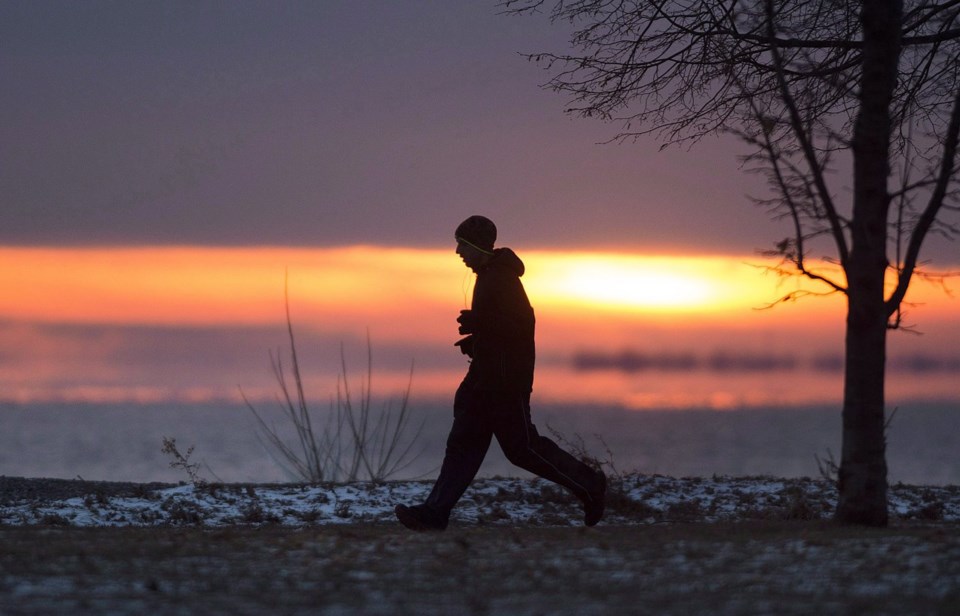MONTREAL — As Quebec considers scrapping the semi-annual time change, data from the province's auto insurance board shows that evening road accidents — including those involving pedestrians — rise sharply in the 30 days after clocks move back in the fall.
Between 2019 and 2023 the average number of injury-causing accidents across the province between the hours of 5 and 8 p.m. rose by more than 25 per cent in the weeks following the fall time change, when the sun sets earlier, to 359 collisions from 287.
The data provided by the Société de l'assurance automobile du Québec indicates that collisions were also up over the entire course of the day, but by 3.8 per cent.
The spring time change had the opposite effect, with the number of crashes over the course of the day dropping by nearly 24 per cent in the 30 days after the clocks move forward and the sun sets later, compared to the 30 days before. And between 5 and 8 p.m., crashes dropped by more than 27 per cent.
The data for accidents involving pedestrians appeared especially stark, rising by 78 per cent following the fall time change, to 73 on average from 41, and dropping by 44 per cent after daylight time begins in the spring, to 20 from 36.
Gino Desrosiers, a spokesman for the insurance board, said October and November are historically the most dangerous for pedestrians, because the evenings are dark and drivers have poor visibility. Shifting the clocks back in the fall, he said, makes it darker during rush hour, when more people are on the roads.
"Rush hour is the moment when there's the most cohabitation between drivers, pedestrians, cyclists, so all road users are more present at that moment," he said in a phone interview. Darkness combined with a lack of snow, which can add contrast to help drivers spot pedestrians, creates particularly risky conditions.
"There may be a little aspect of fatigue with the time change, but we see that it's darkness that plays a big role," he said.
While eliminating the fall time change could lead to less darkness during a portion of rush hour, Desrosiers noted there are many factors that contribute to road accidents, including human behaviour. He said it's important to remind drivers to watch carefully for pedestrians, especially when it's dark, and for people on foot to cross at designated points.
In October, the Quebec government launched public consultations on scrapping the twice-yearly practice of moving the clocks forward one hour in the spring and back in the fall. Justice Minister Simon Jolin-Barrette said the government could subsequently table legislation to abolish the decades-old tradition, but didn't commit to a timeline or say whether the province preferred to stick with winter or summer time year-round.
Sleep experts have long called for the time change to be abolished, and Jolin-Barrette said changing the clocks has "important impacts on the lives of Quebecers," and can cause a lack of concentration, irritability and fatigue, especially in children and teenagers.
However, attempts to abolish the change across North America have not moved quickly in many cases, partly due to debate over whether to stick with standard time or daylight time.
In 2020, Ontario passed legislation to permanently remain on daylight time, but the bill was contingent on Quebec and New York state also making the move. In 2022, the United States Senate passed legislation that would have made daylight time permanent, but the bill was stymied in part by debate over whether it would be better to stick to standard time.
Most Canadians are set to turn their clocks forward again on March 9, 2025. Saskatchewan and the Yukon don't change their clocks, and neither does a small region of eastern Quebec, which remains on Atlantic standard time year-round.
This report by The Canadian Press was first published Nov. 25, 2024.
Morgan Lowrie, The Canadian Press



